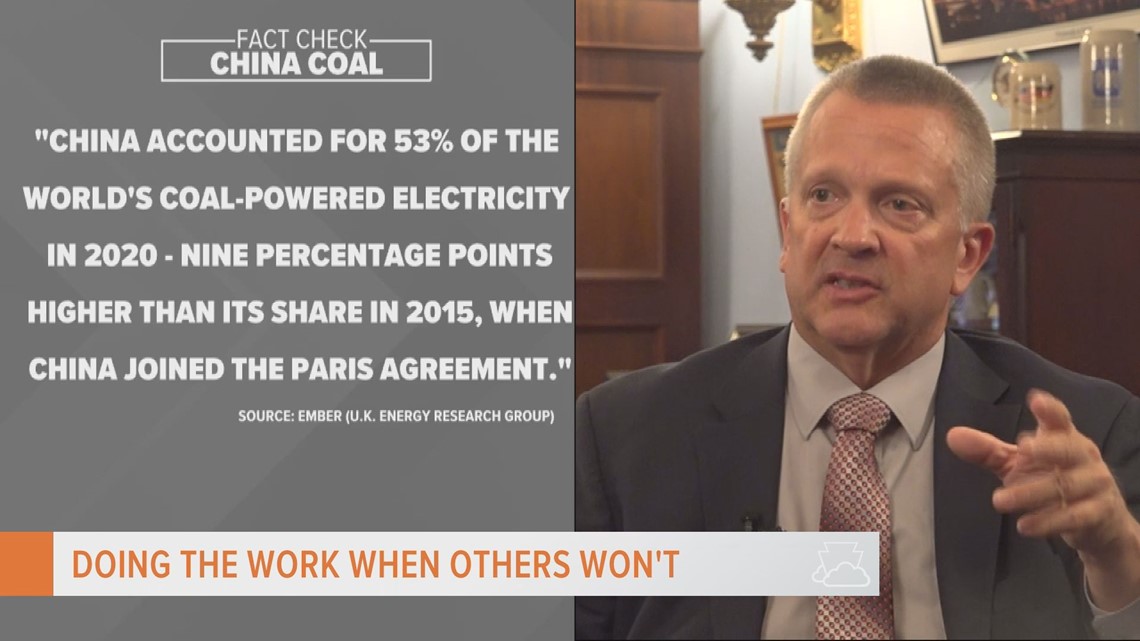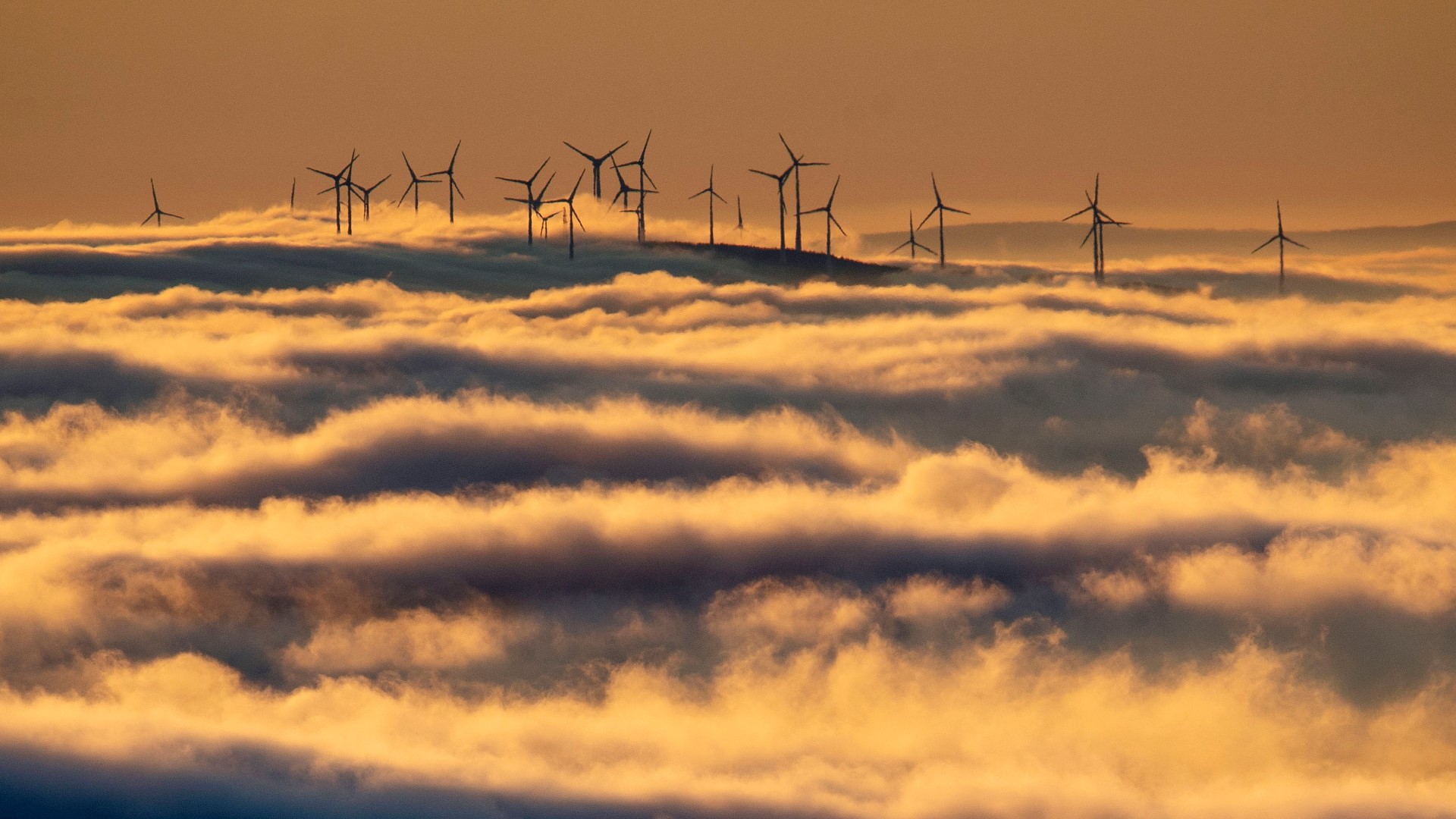HARRISBURG, Pa. — One of the biggest ways that our country and state is attempting to curb emissions and fight the impacts of climate change is via legislative acts.
In Pennsylvania, Governor Tom Wolf has made climate solutions a top priority for his administration. However, not everyone in Harrisburg is keen on statewide, legislative action regarding climate change.
Representative Daryl Metcalf has served coal and oil-rich Butler County for 23 years. He is also in his second term as the chair for the House Environmental Resources and Energy Committee, playing a role in what legally shapes our environmental future.
Representative Metcalf has been quoted calling the effects of climate change “Chicken Little fear-mongering,” something he still does to this day.
We sat down with Representative Metcalfe to talk about climate change and how he uses his position to make an impact.
"There are no climate deniers," he said. "Everybody realizes there's climate change. Now, what is the cause of that climate change? What's the solution, if we need to have one, to deal with any consequences to climate change? Is that climate change that's mainly man-made or something that occurs within our world?”
Representative Metcalfe said back in 2019, when taking over as chair, that he would allow “good Republican legislation” to come to a vote. Since then, 27 items have come to a vote, all Republican backed.
"The narrative that's been created to try and demonize people who are opposed to the main narrative from the left's push for it," Metcalfe said. "The solution they're pushing for is increased regressive taxation on our citizens."
His solution? A team of appointed experts brought in to testify on proposed legislation.
"When you're talking about making policy, you have to use good science," he explained. "Which is why we have experts come and talk to the committee about what's going on in our atmosphere, with climate in Pennsylvania."
In June, those experts appointed by Metcalfe include testimony from Gregory Whitestone, Dr. David Legates, and Dr. Patrick Michaels.
Whitestone represents the CO2 Coalition, funded by the energy industry and those who oppose climate change mitigation.
Legates now works for the Heartland Institute, a think tank backed by those who oppose the scientific consensus on climate change.
Taking a look at Representative Metcalfe’s biggest donors, as recently as last year, we also see oil and gas influence, which includes companies like Marathon, Exxon, and Chesapeake.
We asked Representative Metcalfe if those donors influenced who he brought into the committee to testify.
"My position is this false narrative that's been created to tell people they need to suffer because humanity is responsible for all the climate change that they see," he said. "[This narrative]...that they're going to be the end of themselves and they should suffer through regressive tax policies and trust these people in the government with implementing their money for the projects that will facilitate the solution. I'm going to look for folks that actually are more aligned with my understanding of what's occurring."
Many like Metcalfe don’t believe the U.S. should further climate change legislation when other countries aren’t making the same effort, such as China, who continues to burn coal at record levels as America has reduced it.


But it points to a bigger question. As we see the evidence mounting, which do we put first? Economic or environmental policy to shape our future?
“Being on the wrong side of the science is bad for the country,” Dr. Edward Maibach, a public health communications specialist at George Mason University, said. "My hope is we can pull the issue of climate change back out of the culture wars in America and we can start looking at it like adults again and look at the evidence of what our problems really are and what the best possible solutions are. That's what makes our country great."
"We should be doing everything we can to be sure we're good stewards of our environment, to make sure we're using the energy we produce efficiently, effectively, which is why you've seen C02 reductions in Pennsylvania,” Metcalfe said.
One good steward of the environment is Eric Sauder. He’s a Lancaster County native, founder of the nonprofit RegenAll, and works for TeamAg. Those organizations are helping shape the roles rural and urban communities play in our environment. Sauder is not interested in the politics of Harrisburg or Washington. Sauder says he knows what’s right in front of him.
“I’m much less concerned about whether people believe in climate change [than]...how we can work together to make a better world,” Sauder tells FOX43. “I’ve had a number of farmers that have told me about how they’ve seen the changes. One farmer said things aren’t just different from when his grandfather farmed this land—they’re different from when he took over 10 years ago.”
And he sees a clear path forward. A path good for both science and the wallet.
“I think that climate solutions are really the angle and way that we need to approach any kind of climate action, because it empowers us to see things that we can actually do and often they are win-win,” Sauder said. “Some of those solutions are the ways that farmers are taking care of soil health and storing carbon in soils, the way that they’re managing plants and animals, integrating them into the land as well. So, in addition to ecological benefits, many farmers are able to reduce costs of their operation and add new revenue as well.”
Sauder thinks that those in Pennsylvania can do more than just play catch-up: he thinks the Commonwealth can take the lead in fighting climate change.
“I think Lancaster’s positioned to be a climate leader," he explained. "It’s a place that is known for its ruralness and its urban-ness. Places that embody both of those identities are right now missing from the national climate conversation."

